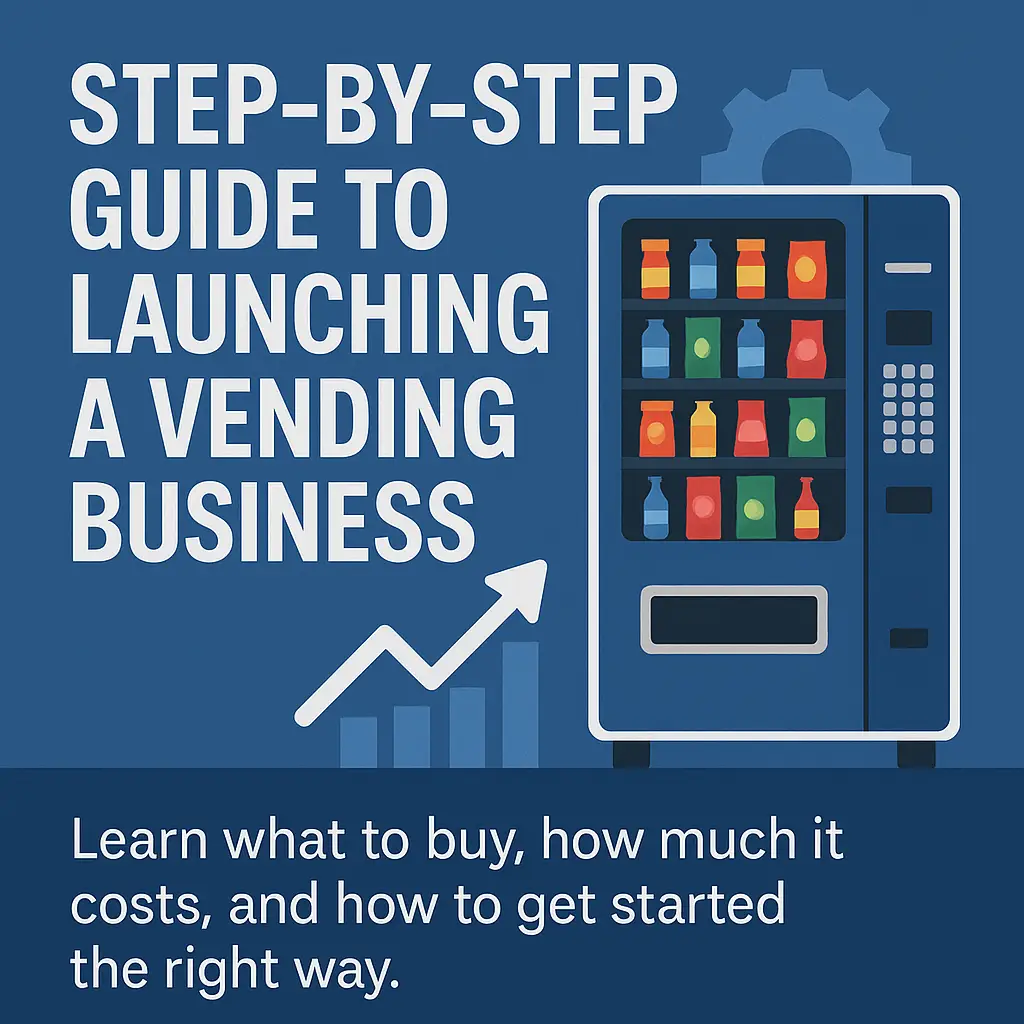How to Start a Vending Machine Business
Step-by-step guide to launching a vending business. Learn what to buy, how much it costs, and how to get started the right way.
Back to Vending Business Startup ResourcesStep-by-step guide to launching a vending business. Learn what to buy, how much it costs, and how to get started the right way.
Back to Vending Business Startup ResourcesStart your 30-day free trial and get instant SMS and email alerts whenever a local business needs vending service. These are real location leads to help you grow your route — you decide which ones to buy, no obligations or contracts.
![]() Startup costs vary based on machine type and inventory
Startup costs vary based on machine type and inventory
![]() Route planning and location matter more than product mix
Route planning and location matter more than product mix
![]() Licenses, insurance, and service plans are must-haves
Licenses, insurance, and service plans are must-haves
30 days free, then $39 / month.
No Commitment. Cancel Anytime.

Starting a vending machine business can be a low-overhead way to earn passive income, but success depends on proper planning. First, decide which type of vending machines align with your goals—combo machines offer versatility, while glass-front units provide visual appeal. Micro markets and AI coolers are also excellent choices for businesses with larger staff or premium product needs.
Budgeting is critical. A single machine can cost between $2,000 to $10,000 depending on whether it's new or refurbished and what technology it includes. You’ll also need to budget for inventory, business licenses, insurance, and possibly a vehicle for servicing your machines. Starting with 2-5 machines is recommended for beginners to test the market without overextending financially.
Finding the right locations is the key to profitability. Look for high-traffic areas such as offices, apartments, fitness centers, or schools. Make sure your machines serve the preferences of that audience—offices often favor healthy snacks and contactless payment, while apartments do well with branded drinks and shelf-stable meals. Before approaching locations, prepare a polished pitch and offer reliability and modern vending options.
Operational success involves consistent service and accountability. Keep machines stocked, functioning, and clean. Using smart tech can help automate inventory tracking and reduce downtime. You must also secure proper vending permits and general liability insurance to protect your business and build credibility with property managers and company decision-makers.
To help secure locations effectively, explore resources like our industry breakdown of vending locations and get tips from our cold calling guide for vending operators.
Vending Exchange connects vending operators with real businesses actively looking for vending services—including traditional machines, AI coolers, and office coffee. Get instant SMS and email alerts when new opportunities are available in your area. No contracts or monthly fees—just buy the leads you want. Start your free 30-day trial today and grow your vending business on your terms.
Start with a combo machine if you're new—it offers snacks and drinks in one unit and can fit in most locations.
Startup costs typically range from $5,000 to $15,000 depending on the number of machines, type of equipment, and location investment.
Research local businesses, high-traffic areas, and underserved spaces. Use email or cold calling to pitch property managers and office decision-makers.
Yes, most states require a business license, sales tax registration, and sometimes a vending permit depending on your city and region.
You can restock machines yourself or hire a route operator. Use smart vending software to monitor inventory levels automatically.
Price your items based on local retail costs, profit margins, and competitor pricing. Test and adjust based on sales.
Machines should be visited weekly or biweekly depending on traffic volume. Check for product levels, cleanliness, and maintenance.
Prepare a short pitch outlining benefits like free service, contactless payment, and product variety. Be clear, polite, and professional.
Used machines are cost-effective for beginners, but newer machines offer better reliability and technology. Choose based on your budget and goals.
Yes, many operators start part-time. It offers flexibility and can grow as demand increases and you secure more locations.